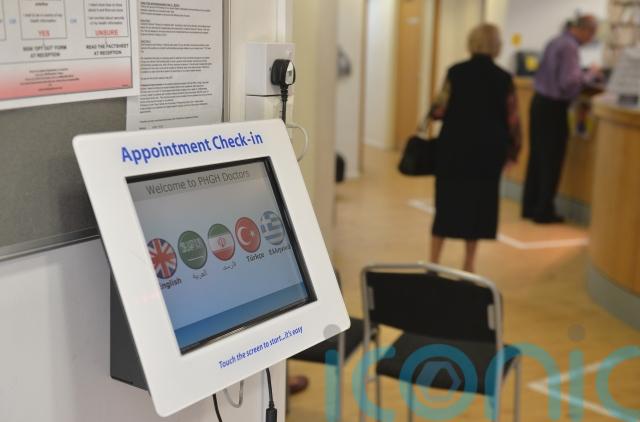
Nearly half (46%) of people in Scotland have found it difficult to make an appointment with their GP in the last 12 months, according to a new report.
The Scottish Government and the Scottish Centre for Social Research surveyed 1,136 people on their expectations of primary care for a report, titled Public Understanding And Expectations Of Primary Care In Scotland.
Data was compiled between February 4 and March 7 this year.
A majority (92%) of respondents reported they had been in contact with at least one primary care service in the last 12 months, which included speaking to their GP, visiting a pharmacy, dentist, optician or out-of-hours service.
Of those who had not used a primary care service in the last 12 months – 29% of respondents – 17% said they did not want to burden the NHS.
Nearly half (46%) of respondents said it was difficult to try and get an appointment with a GP, while around a third said it was difficult to make themselves available for appointments during standard opening times.
The report found more people are accessing face-to-face appointments, with 68% saying their last appointment with a primary care provider was in person. Just 3% of people said their last contact with a provider was by video call.
Over half of respondents (57%) said they had not been to a dentist in the last 12 months. Of those who had been, 75% felt they had been given clear information about treatment costs and 16% said costs were a barrier to having the treatment done.
Respondents reported having high levels of trust in doctors and nurses, with 78% saying they would trust information from accident and emergency doctors and nurses and 75% saying they trusted GPs.
Levels of trust varied with different demographic groups. Trust was higher among those living in the least deprived areas (84%) and with a household income of £2,500 or more per month (86%).

The vast majority of respondents (92%) indicated they felt listened to on their most recent interaction with a primary care professional, only 66% of people generally found it easy to discuss their health concerns so they were understood correctly, while 12% of respondents reported this being difficult.
Overall, the report found a lack of awareness about the full range of primary care services on offer and many still used their GP as the first point of contact.
The report said much more work is needed to direct members of the public to the correct service for their needs.
Additionally, it found those with higher levels of qualifications found it easier to access information about their health issues before making contact with primary care providers than those with less qualifications.
It stated: “These differences are complex and likely reflective of power structures and inequalities in Scottish society more broadly.
“This makes them difficult for primary care to tackle; these results were found in spite of healthcare professionals giving an opportunity to ask questions, making sure their patients understood and displaying a high level of listening skills.
“This suggests that a different, more targeted and nuanced approach may be needed to empower patients with equity.”
A Scottish Government spokesman said “patients who need to see a GP will always be seen”.
“The Health Secretary (Humza Yousaf) will be writing to all GP practices shortly encouraging them to ensure there is an appropriate mix of pre-booked, same day, face-to-face and remote appointments that suits individual practice populations,” the spokesman said.
Subscribe or register today to discover more from DonegalLive.ie
Buy the e-paper of the Donegal Democrat, Donegal People's Press, Donegal Post and Inish Times here for instant access to Donegal's premier news titles.
Keep up with the latest news from Donegal with our daily newsletter featuring the most important stories of the day delivered to your inbox every evening at 5pm.